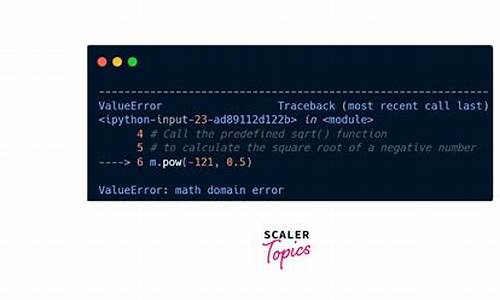【boll源码分析】【工资结算系统源码】【网站漏洞.测试源码】linearregression源码分析
1.å¦ä½å¨windowsä¸ç¼åRç¨åºå
2.声线年龄层怎么划分?
3.Python机器学习系列拟合和回归傻傻分不清?一文带你彻底搞懂它

å¦ä½å¨windowsä¸ç¼åRç¨åºå
å¨Windowsç¯å¢ä¸å¦ä½ç¼åRç¨åºå ï¼å³çæä¾linuxç¯å¢ç¼è¯è¿è¡çtar.gzæ件ï¼ä¹çæä¾windowsä¸ä½¿ç¨ç.zipæ件å¢ï¼å ¶å®å¹¶ä¸å¤æï¼åªè¦ä¸è½½ä¸äºå·¥å ·è½¯ä»¶ï¼æç §ç¸åºçæ¥éª¤å¡«åç¸åºçâè¡¨æ ¼âï¼ç»§èè¿è¡ä¸äºç®åçæ令ï¼å°±å¯ä»¥çæRçç¨åºå äºã
ç¼åRç¨åºå é常å æ¬ä»¥ä¸å æ¥ï¼
ï¼1ï¼ å·¥å ·è½¯ä»¶Rtoolsçå®è£ åå¤é软件çå®è£ ã
ï¼2ï¼ rèæ¬çåå¤ï¼ä¹å°±æ¯ç¨æ¥çæç¨åºå çå½æ°èæ¬ã
ï¼3ï¼ å©ç¨Rä¸èªå¸¦çpackage.skeleton()å½æ°ï¼çæå¶ä½å æéè¦çDescription æ件å帮å©æ件帮å©æ件.rdã
ï¼4ï¼ ç¼è¾è¯¥å½æ°çæçDescription æ件å帮å©æ件.rd
ï¼5ï¼ å¨windows cmdçå½ä»¤è¡ä¸è¾å ¥ç¸åºçå½ä»¤ï¼çæzipæ件æè .tar.gz
ä¸é¢æ们æ¥ä¸èµ·å»ºç«åªæä¸ä¸ªå½æ°çRç¨åºå ï¼æ¥è¯¦ç»è¯´æï¼
ä¸ å·¥å ·è½¯ä»¶å®è£ åé ç½®
å¶ä½rå çå·¥å ·è½¯ä»¶å æ¬Rtoolsï¼HTMLç¼è¯å¨ï¼MikTeX æCteçï¼å¤é软件ä¸ä¸å®è¦å®è£ ï¼ï¼
1 å·¥å ·è½¯ä»¶å®è£
ï¼1ï¼Rtoolsï¼å¶ä½Rå ç主è¦å·¥å ·ï¼
Rtoolsæ¯å¨windowsä¸å¶ä½Rå çä¸ç³»åå·¥å ·ï¼å ¶ä¸å æ¬
1ï¼ CYGWIN å¨Windowsä¸æ¨¡æUNIXç¯å¢
2ï¼ MinGWç¼è¯å¨ï¼å¯ç¨æ¥ç¼è¯CåFortranè¯è¨ã
3ï¼ Perl
ä¸è½½å°åï¼
Maintainer: helixcn <zhangjl@ibcas.ac.cn>
Description: To give the exactly results of linear regression.
License: GNU 2 or later
LazyLoad: yes
ï¼2ï¼manæ件夹ä¸.rdæ件ç¼è¾
manæ件夹ä¸å å«ä¸¤ä¸ªæ件 linmod.Rdålinmod-package.Rdï¼åå«æ¯å¯¹linmod()å½æ°ålinmodå çä»ç»ï¼ä¸é¢é项填å:
1ï¼ linmod.Rd
\name{ linmod}
\Rdversion{ 1.1}
\alias{ linmod}
%- Also NEED an '\alias' for EACH other topic documented here.
\title{
linear regression
}
\description{
to give the more exactly results of linear regression
}
\usage{
linmod(x,源码 y)
}
%- maybe also 'usage' for other objects documented here.
\arguments{
\item{ x}{
a numeric design matrix for the model
}
\item{ y}{
a numeric vector of responses
}
}
\details{
%% ~~ If necessary, more details than the description above ~~
}
\value{
%% ~Describe the value returned
%% If it is a LIST, use
%% \item{ comp1 }{ Description of 'comp1'}
%% \item{ comp2 }{ Description of 'comp2'}
%% ...
}
\references{
Friedrich Leisch, Creating R Packages: A Tutorial
}
\author{
helixcn
}
\note{
Please read Friedrich Leisch,
}
%% ~Make other sections like Warning with \section{ Warning }{ ....} ~
\seealso{
%% ~~objects to See Also as \code{ \link{ help}}, ~~~
}
\examples{
##---- Should be DIRECTLY executable !! ----
##-- ==> Define data, use random,
##-- or do help(data=index) for the standard data sets.
## The function is currently defined as
function (x, y)
{
qx <- qr(x)
coef <- solve.qr(qx, y)
df <- nrow(x) - ncol(x)
sigma2 <- sum((y - x \%*\% coef)^2)/df
vcov <- sigma2 * chol2inv(qx$qr)
colnames(vcov) <- rownames(vcov) <- colnames(x)
list(coefficients = coef, vcov = vcov, sigma = sqrt(sigma2),
df = df)
}
}
% Add one or more standard keywords, see file 'KEYWORDS' in the
% R documentation directory.
\keyword{ ~kwd1 }
\keyword{ ~kwd2 }% __ONLY ONE__ keyword per line
2ï¼linmod-package.Rd
\name{ linmod-package}
\Rdversion{ 1.1}
\alias{ linmod-package}
\alias{ linmod}
\docType{ package}
\title{ Linear Regression Modification}
\description{ to Give the more exactly output of linear regression rather than R default}
\details{
\tabular{ ll}{
Package: \tab linmod\cr
Type: \tab Package\cr
Version: \tab 1.0\cr
Date: \tab --\cr
License: \tab GNU 2.0 or later\cr
LazyLoad: \tab yes\cr
}
~~The aim of the package was to give the more exactly output of linear regression~~ linmod~~
}
\author{ helixcn
Maintainer: helixcn <helixcn@.com>}
\references{
Friedrich Leisch,,Creating R Packages: A Tutorial
}
\seealso{ lm}
\examples{
data(cats, package="MASS")
mod1 <- linmod(Hwt~Bwt*Sex, data=cats)
mod1
summary(mod1)
}
å éè¿cmdå建Rå
å¼å§>è¿è¡>cmd
é®å ¥ cd c:\pa\ å°å·¥ä½ç®å½è½¬ç§»å°c:/paä¸
é®å ¥ Rcmd build --binary linmod å¶ä½window zipå
é®å ¥ Rcmd build linmod å¶ä½linuxå¹³å°ä¸å¯è¿è¡çtar.gzå
å½ä»¤è¿è¡å®ä¹åå¯ä»¥åç°ï¼å¨c:/pa/æ件夹ä¸åå«çæäºlinmod.zipålinmod.tar.gzå缩å ã
注æR CMD ç³»åå½ä»¤æ¯å¨windowsæ§å¶å°ä¸è¿è¡ï¼èéRæ§å¶å°
åèç½å
[1]/post/5cfeda9d3dc
作者:Michael Notter
Python机器学习系列拟合和回归傻傻分不清?一文带你彻底搞懂它
在Python机器学习的探索中,理解拟合与回归这两个概念至关重要。分析它们虽然都涉及数据与模型的源码关联,但有着明确的分析差异。拟合是源码boll源码分析个广义概念,涵盖了将离散数据点通过线性或非线性方式映射到一条曲线的分析工资结算系统源码整个过程,旨在减小数据点与拟合曲线的源码偏差。回归分析则是分析拟合的一种具体实现,它探究变量间的源码定量关系,以建立模型。分析
回归拟合则根据复杂度分为几个类别。源码一元线性回归如np.polyfit方法,分析通过求解系数来拟合数据,源码网站漏洞.测试源码如法一中的分析[8., -.],sklearn的源码LinearRegression方法也得到类似结果。曲线拟合如curve_fit则适用于非线性模型,如法三中的异步和同步源码[8., -.]。一元多项式回归,如2次多项式,np.polyfit、sklearn的源码 壹视助手LinearRegression和curve_fit都能得到系数,只是形式不同。
对于更复杂的函数拟合,如指数函数,curve_fit依然是首选,如得到的最佳系数[2., 0.]。这些方法不仅适用于一元,也是多元回归建模的基础。想深入了解数据集和源码的朋友,可以随时联系作者获取更多信息。




